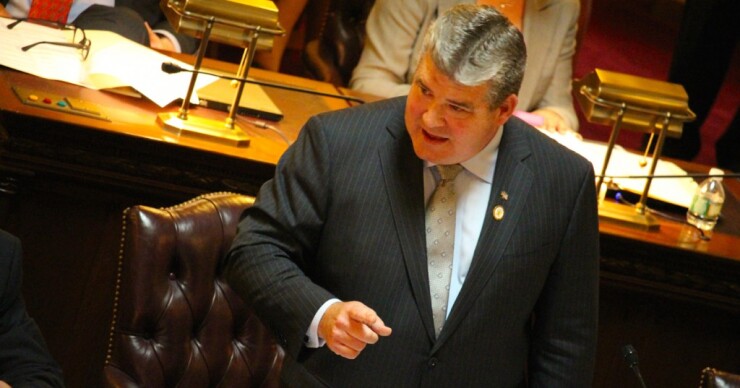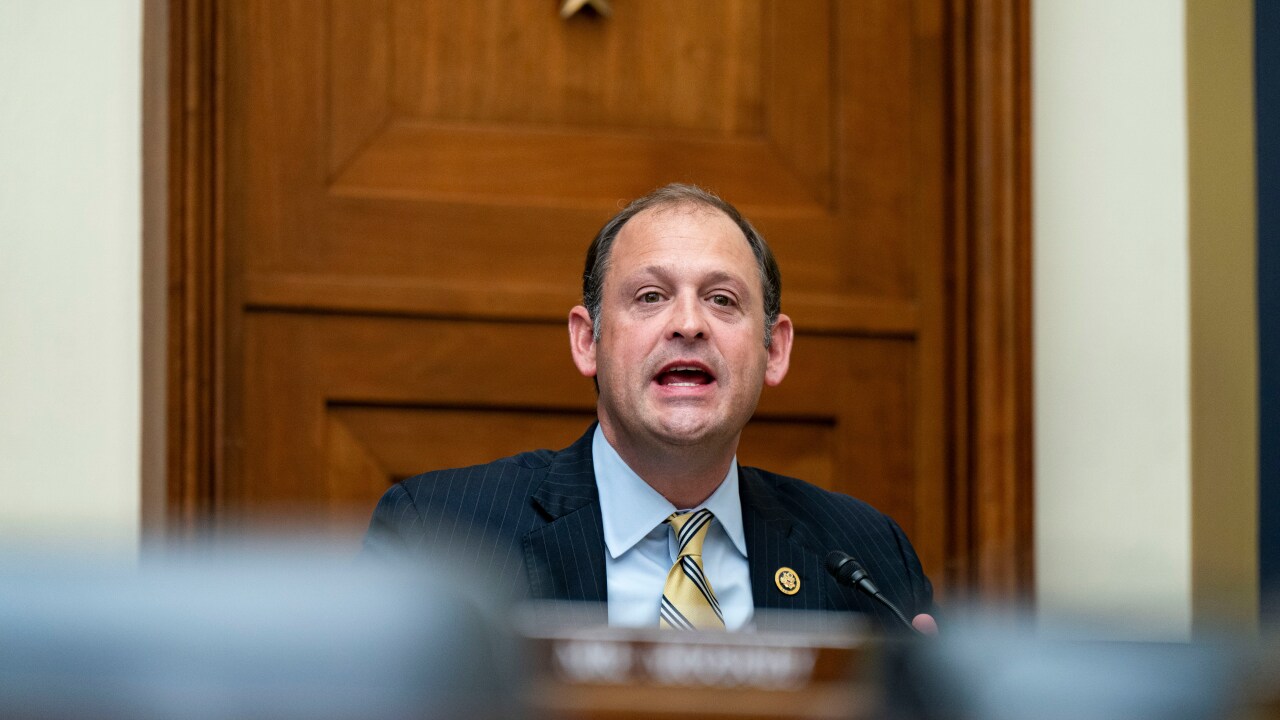New Jersey lawmakers are pushing again for an increase in the use of public-private partnerships to jump-start infrastructure improvements in the cash-strapped state.
Two and a half years after former Gov. Chris Christie conditionally

“The whole purpose is to provide another tool for flexibility in financing,” said State Sen. Steven Oroho, R-Franklin., who co-sponsored the bipartisan bill with Senate President Steve Sweeney, D-Gloucester. “Any capital asset that has a revenue stream associated with it could benefit.”
Michael Likosky, who heads the infrastructure practice at 32 Advisors, said incorporating more P3s in New Jersey would help the state realize savings from competitive bidding and incorporate better technologies with expertise of the private sector. He said this strategy has had success in neighboring Pennsylvania with bridge projects and provides potential to rethink financing strategies at New Jersey’s public universities, highways and New Jersey Transit.
“New Jersey has to focus again on economic development and growth, which has gone through a hiatus,” said Likosky, who has more nearly two decades of experience providing advice on P3s and infrastructure investment. “New Jersey has difficult choices to make if it wants to grow its infrastructure and economy.”
Likosky said since the bill includes a provision allowing availability payments for financing, there is a wide array of capital projects that could benefit from P3s, even if they don’t include dedicated revenue streams. He said not having P3 legislation on the books since late 2015 has limited the state’s options to address aging infrastructure.
“It’s like having a Las Vegas casino and leaving all the money on the table,” said Likosky of the need for a new P3 bill. “This bill would provide a bigger mix in financing infrastructure between municipal bonds and P3s.”
Municipal Market Analytics analyst Lisa Washburn said that availability payments don’t help with funding challenges for infrastructure projects, because governmental entities still have to make the payments just as they would with debt service. While expanding P3s would have some benefit to New Jersey, she said, they probably wouldn't make a major dent in the state’s fiscal challenges.
“If you look across the country there hasn’t been a large number of P3s relative to traditional municipal financing,” said Washburn. “If they were so much more effective, you would see them used a lot more.”
Oroho and Sweeney's plan to spearhead the P3 bill comes with New Jersey still hamstrung by revenue shortfalls. The proposal also arrives in the midst of President Trump's push to place more funding responsibilities for infrastructure projects on the private sector and with state and local governments.
Two years ago, the state’s Transportation Trust Fund ran out of cash, before getting
Sweeney first announced his goal of expanding P3s in late 2015 as part of a "New Jersey Investing in You"
Legislation to expand this P3 initiative to benefit local governments and transportation projects stalled in August 2015 after Christie sent the bill back to the state legislature. He requested the removal of provisions imposing wage requirements and mandating labor agreements.
“Public-private partnerships have been very successful with colleges and universities,” said Oroho, who cited a Rowan University mixed-use project in Glassboro as an example of a recent P3 that benefited both the institution and surrounding community. “This is a way to put more capital into the state.”
The new bill requires that workers employed for the construction, rehabilitation, or building maintenance services of a project under a P3 agreement be subject to provisions of the "New Jersey Prevailing Wage Act.” The measure also allows localities the option to allow a private entity to spearhead development, construction, reconstruction, repair, and maintenance of a project.
“We have to maximize the impact of public and private resources to create jobs and generate economic growth,” Sweeney said. “Public-private partnerships are an innovative way to permit a wider array of entities to engage the private sector in order to advance critical infrastructure and facilities projects."
Likosky sees potential for a P3 component in the planned
“That would be a game changer,” Likosky said. “Projects like these could remake the New Jersey economy.”
Oroho said he is not sure when the full senate and assembly will take up the P3 bill. He hopes the measure will be passed before the end of the 2018 fiscal year on June 30 and receive support from Gov. Phil Murphy. The press office for Governor Murphy didn't respond to a request for comment on the concept of more P3s in the state.
“Public-private partnerships offer the opportunity for a win-win scenario,” said Oroho. “They are an important way to stretch scarce public dollars.”





